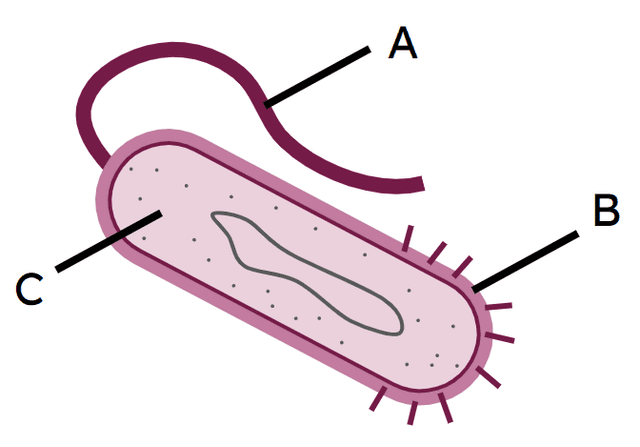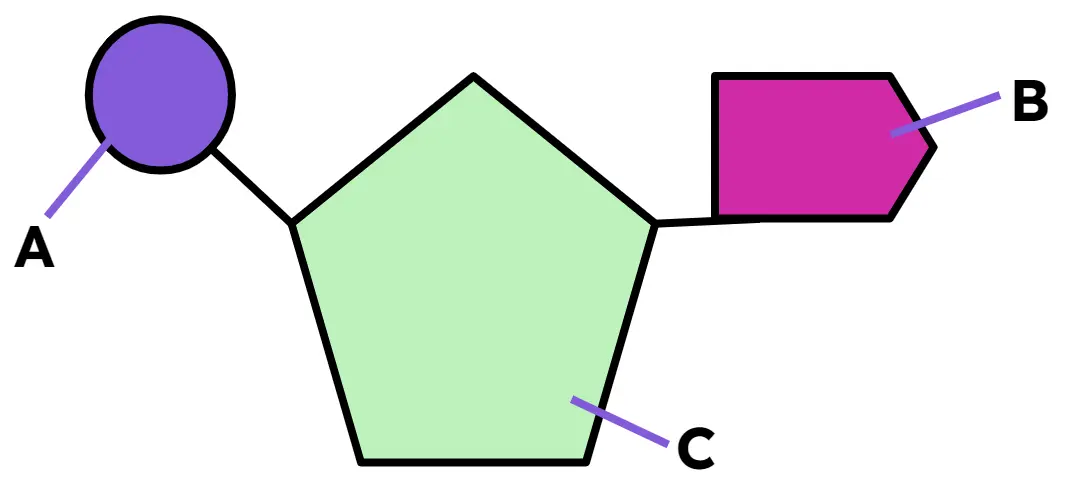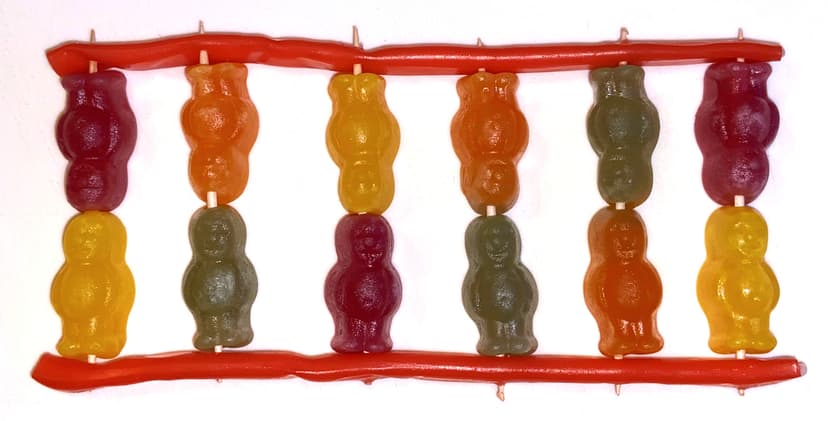Myths about teaching can hold you back
- Year 10
- AQA
- Foundation
- Year 10
- AQA
- Foundation
The chemical structure of DNA
I can describe the chemical structure of DNA.
These resources were made for remote use during the pandemic, not classroom teaching.
Switch to our new teaching resources now - designed by teachers and leading subject experts, and tested in classrooms.
Lesson details
Key learning points
- DNA is a type of biological molecule called a nucleic acid.
- DNA is made of two strands, each a long polymer of nucleotides, wound together in a double helix shape.
- DNA is a polymer of four different nucleotides (A, C, G and T).
- Each of the four types of nucleotide in DNA is made of the same sugar and a phosphate group, bonded to a different base.
- Nucleotides in each strand of DNA pair up in a complementary way; A pairs with T, and C pairs with G.
Keywords
DNA - DNA is a nucleic acid polymer made up of four nucleotides, it contains the genetic code in all living organisms.
Nucleic acid - A nucleic acid is a polymer made up of nucleotides, an example is DNA.
Polymer - A polymer is a chemical made up of smaller repeating chemical groups.
Nucleotide - A nucleotide is a chemical group that make up the building blocks of DNA, the four types are coded A, T, C and G.
Base - A base is the part of a nucleotide that pairs to its complementary base across the middle of the DNA double helix C-G and A-T.
Common misconception
DNA is living and not necessarily a chemical.
Discussing that DNA is a chemical molecule and showing how it is made up of smaller chemical groups, and then modelling this chemical structure.
To help you plan your year 10 biology lesson on: The chemical structure of DNA, download all teaching resources for free and adapt to suit your pupils' needs...
To help you plan your year 10 biology lesson on: The chemical structure of DNA, download all teaching resources for free and adapt to suit your pupils' needs.
The starter quiz will activate and check your pupils' prior knowledge, with versions available both with and without answers in PDF format.
We use learning cycles to break down learning into key concepts or ideas linked to the learning outcome. Each learning cycle features explanations with checks for understanding and practice tasks with feedback. All of this is found in our slide decks, ready for you to download and edit. The practice tasks are also available as printable worksheets and some lessons have additional materials with extra material you might need for teaching the lesson.
The assessment exit quiz will test your pupils' understanding of the key learning points.
Our video is a tool for planning, showing how other teachers might teach the lesson, offering helpful tips, modelled explanations and inspiration for your own delivery in the classroom. Plus, you can set it as homework or revision for pupils and keep their learning on track by sharing an online pupil version of this lesson.
Explore more key stage 4 biology lessons from the DNA and the genome unit, dive into the full secondary biology curriculum, or learn more about lesson planning.

Licence
Prior knowledge starter quiz
6 Questions
Q1.The drawing shows a bacterial cell. Which structure (A, B or C) contains the genetic material?

Q2.Which is the best definition of a gene?
Q3.All organisms have similarities in their DNA. Put these examples in order, starting with the example of two things that have the most similar DNA.
Q4.What do scientists call the sections of DNA in a chromosome that lie between genes?

Q5.True or false? Only genes make up the genome of an organism.
Q6.Which is the best explanation for why the genomes of humans and bananas have similarities?
Assessment exit quiz
6 Questions
Q1.In plant and animal cells, the genome is stored in the ...
Q2.DNA is a nucleic acid polymer. How many nucleic acid strands make up each DNA molecule?
Q3.Put these in size order, starting with the smallest.
Q4.The diagram is a model of a nucleotide. Which part (A, B or C) represents the base?

Q5.The instructions contained in a gene are often referred to as the genetic code. Which is the best description of the genetic code?
Q6.The photograph shows a model of part of a DNA molecule. It is made from liquorice and jelly babies. What would improve the model?



